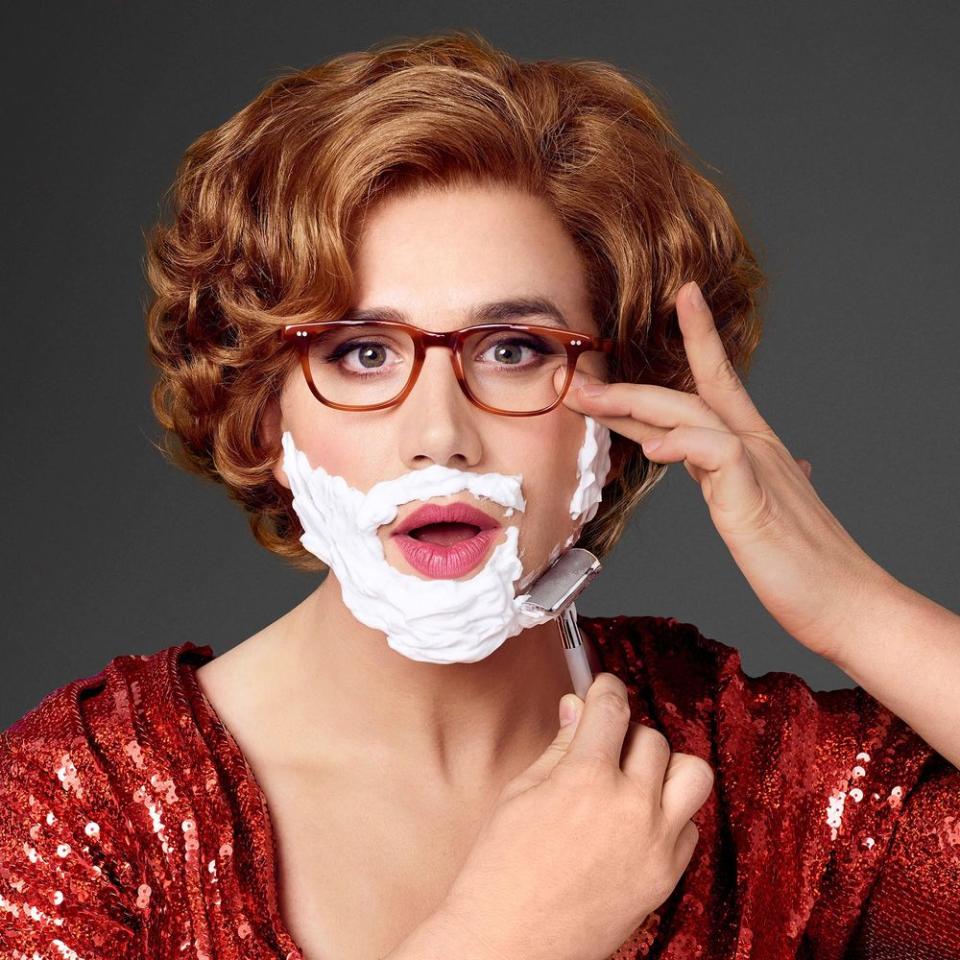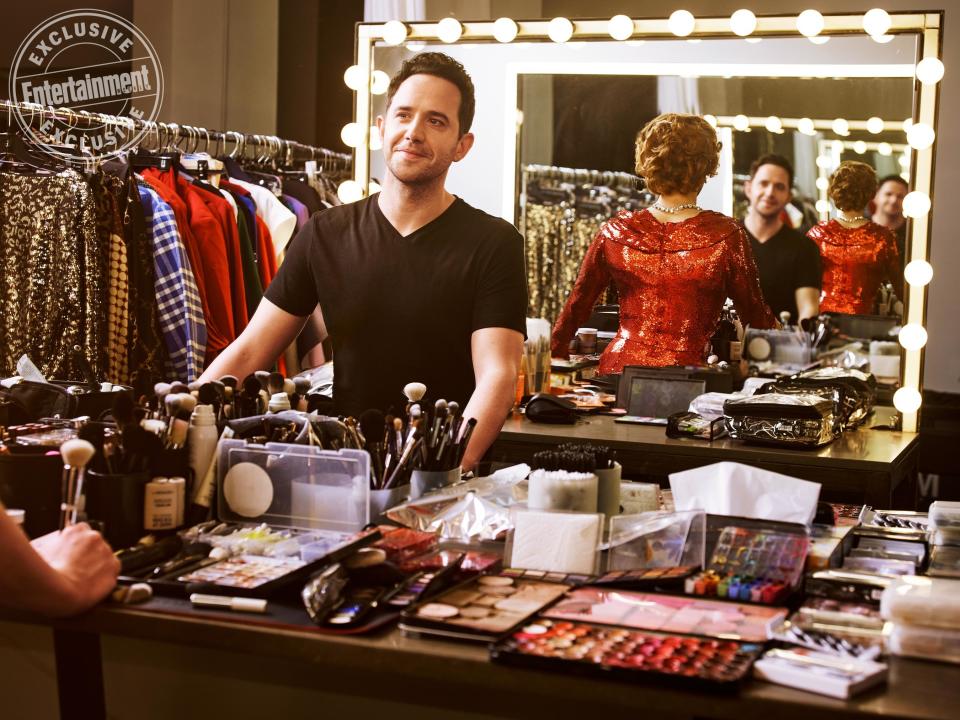For Santino Fontana, Tootsie is more than a diva's debut
To young fans, he was the voice of villainous Prince Hans in Disney’s Frozen (though five years later, he says he’s still never been recognized). To millennials, he was the face of sarcastic bartender Greg on The CW’s Crazy Ex-Girlfriend (though two years later, he’s since left the show and the role has been recast). It’s to older fans that Santino Fontana now turns his attention, ready to light up moviegoing memories — and Broadway — as the dashing hunk in the dazzling dress in the new musical adaptation of Sydney Pollack’s 1982 comedy classic, Tootsie, which is now in previews and officially opens April 23.
When director Scott Ellis called Fontana, 37, to discuss the leading role of resourceful actor Michael Dorsey, Fontana knew it was a great part from his memory alone of Dustin Hoffman’s Oscar-nominated performance. “Scott mentioned the title, and I launched into this whole thing of ‘You gotta make sure you get the right person but you have to be careful because the guy you cast can’t be just a pretty boy but he also can’t be just a singer,’” Fontana says without a breath. “I went into this long list of reasons to be careful because it’s a really great part. That story of somebody pretending to be somebody and in the process becoming a better person is a great story we tell all the time, for good reason.”
On stage, the gist of Tootsie’s narrative is the same: Michael Dorsey is a hotheaded actor who reinvents his career by donning drag as a lovable actress named Dorothy Michaels. Radiating everything Michael doesn’t, Dorothy now charms modern-day Broadway — a change from the movie’s ‘80s soap-opera setting — in a peculiar musical adaptation of Romeo and Juliet.
Though he’s never quite auditioned to play Juliet’s Nurse, the whole thing is otherwise a bit meta for Fontana. Like his character (pre-drag), Fontana has played the part of a hustling actor in New York for over a decade. “I’ve been both really lucky and really unlucky,” he says. “I’ve been in shows that ran a week, shows where I’ve gotten injured. I’ve had great and terrible experiences. But I do count myself lucky.” Clocking Tootsie as his ninth Broadway show, Fontana opts for the positive read of his adventure chasing the stage. “Scott said to me once, ‘You’re like the positive version of Michael,’” Fontana laughs. “I’m willing to try anything. I believe the only limits are the limits that you put on yourself, that anyone’s capable of anything, and that anybody can play anything if they figure out how to do it. I became an actor because to avoid an identity always, and to get back to that feeling as a kid of playing the floor is lava.”
In Dorsey’s encounters with the industry, Fontana sees parts of himself, naturally — but he differs from his hotheaded character in his quick understanding of the Dorothy half of the equation. It doesn’t take Fontana a two-and-a-half hour journey to feel the empathy demanded by the show’s dramatic, if still comic, narrative strokes. “If you go into a dress and heels and deal with the upkeep that is required of you, you’re going to immediately empathize with the people that have to do that. You’re literally walking in somebody else’s shoes and you’re forced to look at the world slightly differently, and that opportunity to try on another persona is something that is incredibly meta because what Michael is going through is also what I’m going through in that sense.”

There’s a core divergence between the actors’ recognition of the loaded 2010s timeliness of a man pretending to be woman for the sake of comedy. It was a key point early on in his Tootsie journey that Fontana was eager to do his homework. “I like to think of myself as a progressive, open-minded dude, but you don’t know what you don’t know, so I did a ton of research,” says Fontana. “This moment is important, and though it’s true for any character, I knew there was especially a responsibility to do this right.”
He started, as all men should, by listening: to a close friend and cast mate, Leslie Donna Flesner, who became Fontana’s “lady coach” (her term) and taught him the art of feminine physicality; to a playwright who loaded Fontana up with required reading on feminist theory; and to essayist Rebecca Traister, author of the scorching nonfiction book Good and Mad, who sat down with Fontana for a necessary schooling. “In just a few minutes,” he says, “she reminded me that as many of the superficial things that are funny — shaving, the bra, the waxing, the makeup, the nails, the hair — are real, what’s also real is that no one’s ever going to ask me if I need to be walked to the subway. No one’s going to talk to me about the pay discrepancy because I’m a woman. No one’s going to have to wonder if they got a job or not because they were attractive enough.” Fontana goes on: “The more we’ve done the show, the more I’ve noticed the ways people treat women differently. This has changed me.”
There’s been a change at home, too. Watching her husband go through the wringer of female fashion, Fontana’s wife, Jessica, has reacted to her husband’s role with both glee and a certain amount of crisp honesty. “There was a time when I was wearing heels for 30 minutes at a time while watching TV or doing chores around the house, just so I would get used to them,” says Fontana. “Jess came home one day and just said, ‘Oh, this is gonna be a weird year.’”
A version of this story appears in the April 5/12 issue of Entertainment Weekly, on stands now or available here. Don’t forget to subscribe for more exclusive interviews and photos, only in EW.
Related content:


